CICTAR Blog: Lula’s proposals for tax reform in Brazil are a big step forward. But victory has to be fought for.
CICTAR researcher Livi Gerbase welcomes proposals for progressive tax reform in Brazil, but warns that there is still work to do
CICTAR researcher Livi Gerbase presenting research on dividends, taxation and millionaires at a G20 Civil Society event in 2024
In general, income tax in Brazil is progressive, with a total exemption for the lowest earners and increasing tax rates as the income increases. However, this trend comes to an abrupt halt once it reaches the top 1%. While the effective tax rate for 99% of the population is 12.5%, for the top 1% it is around 10% and this drops to 3.5% for the top 0.1%, the super-wealthy. The main reason for this huge inequality in the collection of personal income tax is that the top 1% almost exclusively gain their income from dividends. And in Brazil dividends have not been taxed since 1995, permitting the super-rich to accumulate enormous personal wealth, without paying any taxes on the source of that wealth.
A new proposal from President Lula means that this scenario could change. The Brazilian government has just proposed legislation to reform income taxes for individuals. There will be full and partial exceptions for middle- and lower-income taxpayers that will mean that 90% of current Brazilian taxpayers will have more money in their pockets at the end of each month. The number of people who will be completely exempt from income tax will be increased by 10 million.
It would also impose a minimum tax on individuals with income above R$ 600,000 (US$ 105.2 thousand) per year. Although dividends will continue to be tax-free, there will be a minimum tax that individuals will have to pay, from 2.5% to 10% depending on income, if that income is derived from dividends. The collection of this minimum tax will be through withholding the taxes in the distribution of dividends by companies, making it easier to implement. The taxes on companies and individuals combined would be capped at 34% for non-financial companies and 45% for financial companies. There will also be a 10% taxation on dividends remitted abroad, which in 2022 were R$ 193 billion, and according to the government this will increase revenues by R$ 8.9 billion (US$ 1.56 billion).
This is a clearly progressive reform. It does not necessarily aim to increase taxes for the country overall, but to redistribute, ensuring that those with higher incomes will start paying a fairer share of taxes.
The redistribution component is evident. Even though the implementation of the minimum tax will affect only 141,400 people (representing only 0.06% of the population), millions will benefit from the new tax brackets. The government estimates those affected by the minimum tax are currently paying an average effective tax rate of just 2.54% and under the new proposals this would rise to an effective tax rate of 9%.
We already know who some of those 141,400 people are. As shown by CICTAR, five Brazilian billionaire families accumulated at least R$ 22.1 billion (US$ 3.884.27 billion) without paying any taxes from 2019 until 2023 due to the dividend exemption. If Brazil taxed them at the same average rate as Europe, 24%, the government could have raised at least R$ 5.3 billion (US$ 929 million) by taxing just these five families, a value 4 times greater than the budget of the Ministry of Indigenous Peoples authorized for 2024. CICTAR, together with other CSOs in Brazil and internationally, has continued advocating for dividend tax and other progressive reforms in Brazil and last year presented to the G20 their proposals and an endorsement of the government’s proposal on taxing the super-rich.
This research also shows that the minimum tax proposal topping at 10% is still timid compared with the international scenario but could go a long way toward making the richest pay taxes in Brazil. There are other limitations to the President’s bill. Since dividends will continue to be tax-free, whereas salaries and other sources of income will be taxed, the discrepancies will continue, and high-income salaries will still be taxed up to 27,5%. Additionally, the wealth of the rich is under-taxed in Brazil and will be untouched by the reform.
Although this is a somewhat modest reform in terms of taxing the rich, getting it passed in the Brazilian Congress will still be a major challenge. Only the Brazilian Congress has the power to turn a bill into a law, and they won’t make it easy for a progressive reform to be victorious. The parliament (dominated by the right-wing and liberals) has recently approved a tax reform that created a new VAT for the country after years of discussions. Income tax reform is even more difficult politically given its explicit redistribution efforts. The rich have grown accustomed to not paying taxes in Brazil and invest heavily in lobbying to continue this privilege.
However, with popular support and the right political articulation, this bill can become law, and civil society and labour organizations will need to show their strength in campaigning for fiscal justice. Simply getting the proposal onto the table is a huge victory for Brazilian society in general and for fiscal justice organizations, including CICTAR, in particular. Alongside others, we have been active in advocating for the proposed tax reform.
It is also a wider sign of hope, given the current political climate in the world, where Donald Trump’s proposed tax and tariff proposals would make the very rich much richer and working families poorer. Once again, Latin America is showing the world that it is still possible fight for progressive reforms that put the wellbeing of all in front of the profits of the few.

